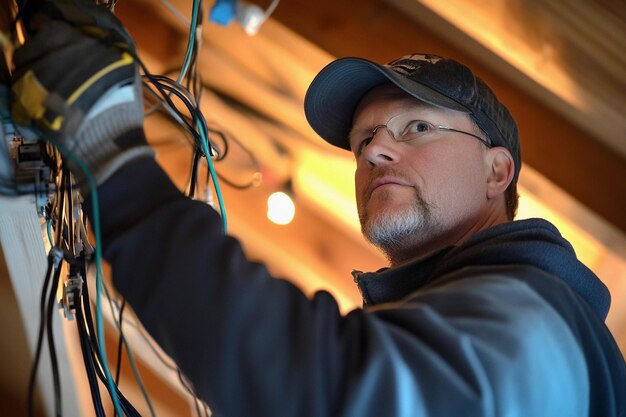Unlock Your Future: Becoming a Journeyman Electrician
Transforming into a skilled and licensed journeyman electrician is more than a career choice; it’s an entry into a dynamic and in-demand profession that powers the backbone of society. Whether you're drawn by the promise of good pay, job stability, or simply the satisfaction of building and fixing things, this path promises a bright future. Let's delve into how you can transition from an aspiring electrician to a certified journeyman.
Understanding the Path
A journeyman electrician is a tradesperson with the experience and training necessary to work independently. In most jurisdictions, this involves completing a combination of classroom instruction and hands-on training through an apprenticeship. Here’s a step-by-step guide on how to get there:
1. Obtain a High School Diploma or GED
Before starting your journey, ensure you have a high school diploma or a GED. Focus on subjects like mathematics, physics, and electronics, which will provide a solid foundation.
2. Complete an Apprenticeship
An apprenticeship is your entry ticket into the electrical world. This typically involves 4 to 5 years of learning while earning. You’ll spend hours in both classroom learning and on-the-job training under the supervision of skilled electricians. Seek out local labor unions, electrical contractors, or trade schools for apprenticeship opportunities.
3. Get Licensed
After completing your apprenticeship, the next step is obtaining a journeyman license. This typically involves passing a state-specific exam that tests your knowledge of electrical codes, practices, and safety. Review your state’s requirements as they can vary.
4. Continue Learning
Even after you become a journeyman, the learning doesn’t stop. Changes in technology and codes mean it’s essential to stay informed. Continuing education will keep your skills sharp and help you advance to become a master electrician or even start your own business.
Navigating the Financial Side
The path to becoming a journeyman electrician is accessible, but financial hurdles can sometimes obstruct the way. Fortunately, several resources can help lighten the load:
Scholarships and Grants
These are available from various institutions, including trade schools and local government programs, to support those pursuing vocational training. Investigate options like Pell Grants and Scholarships for Trade Schools.
Apprenticeship Stipends
Many apprenticeships offer stipends or salaries to help support you while you learn. These programs not only provide invaluable experience but also a steady income without accumulating debt.
Government Aid Programs
Programs like Workforce Innovation and Opportunity Act (WIOA) can offer funding to assist with training expenses. These are particularly helpful if you’re looking to upskill or reskill into a new trade.
Student Loans and Credit Solutions
If you need additional support, consider federal student loans, which often come with favorable terms and repayment options. Additionally, explore credit solutions specifically tailored for vocational training; they can provide a buffer without high-interest rates.
Building a Sustainable Financial Base
While working as an electrician, it’s essential to manage your finances wisely. Consider credit counseling services if debt becomes an issue or you need assistance in plotting a financially secure future. Managing credit responsibly will open doors to new investment opportunities, including starting your own business.
Becoming a journeyman electrician is a rewarding journey filled with opportunities and growth. With the right preparation and support, you can make this journey not just a career, but a fulfilling lifelong vocation.
🔌 Key Financial Assistance Resources for Aspiring Electricians:
- 🎓 Educational Grants: Pell Grants, Scholarships for Trade Schools
- 🛠️ Apprenticeship Programs: Paid apprenticeships with unions or contractors
- 💼 Government Aid: Workforce Innovation and Opportunity Act (WIOA)
- 📚 Continuing Education: Subsidized courses for skill advancement
- 💳 Credit Solutions: Student loans and credit counseling services for trades
By leveraging financial resources and educational opportunities available, your path to becoming a journeyman electrician can be both smooth and financially responsible.

